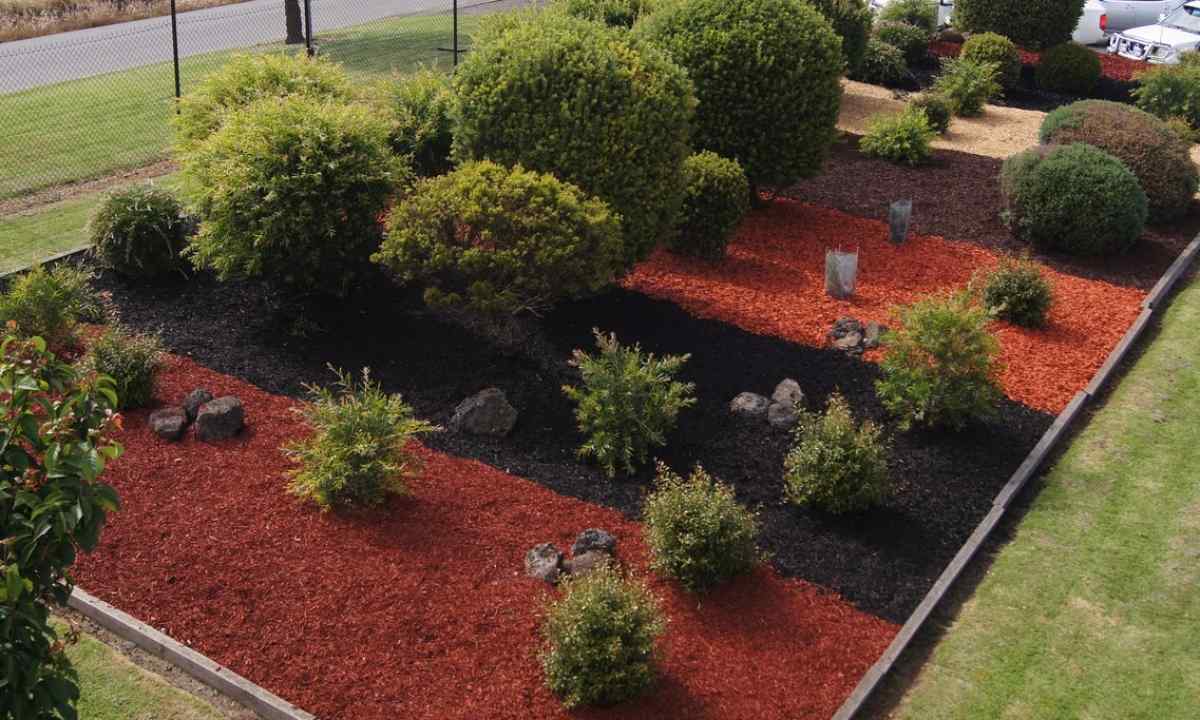The modern summer resident has two main dreams: to receive there is as much as possible harvest and time for it to spend as little as possible. It would seem, requirements are incompatible? At traditional conducting truck farming - perhaps, are incompatible. And here at turn to organic agriculture these dreams are quite fated to be carried out. The main reception at the same time is mulching.
What is the mulching? It is protection, cover of the soil certain materials for improvement of its fertility.
For what it is necessary to mulch the earth?
Applying cover of the soil various substrates pursue several aims:
- protection of root system of plants against overheating, overcooling;
- maintenance of certain acidity of the soil for the plants which are sharply reacting to its change (rhododendrons, blueberry, heather, hydrangea);
- restriction of growth of weeds;
- preservation of moisture in the soil, in this regard considerable economy of water when watering;
- accumulation of organic chemistry in the soil at the expense of peregnivaniye of organic mulch, growth of fertility of the earth;
- protection of beds against washing out by autumn rains and spring floods;
- preservation of honeycomb of the soil that well influences the root system of plants;
- protection of harvest against pollution;
- extermination of soil wreckers and causative agents of diseases.
As we see, the reasons to provide the soil with protective layer, there is a lot of.
What the mulch is
The mulch can be both organic, and inorganic origin.
Peat, compost, humus, mowed grass, sawdust, shredded bark and cones of trees, straw, hay, shell of nuts, pod of sunflower seeds and buckwheats, paper (newspapers, cardboard) can be additional source of organic chemistry.
By the way, huge plus in use of mowed lawn grass as mulch is the solution with its utilization.
Separately as magnificent material for mulching it is possible to allocate siderata - the plants intended for improvement of fertility of the soil.
Some agronomists carry to organic mulching, by the way, very effective, full sodding of garden lawn herbs.
As inorganic mulch most often use polyethylene film, nonwoven ukryvny material (spunbond, lutrasit, agrofibre) and also dumping by gravel and marble crumb.
Sometimes for cleaning of the site from malicious weeds use mulch in the form of old pieces of linoleum, roofing material, synthetic oriental carpets and old panels of banners. They are stacked on future beds, without removing, for 1-2 years.
Rules of mulching
How to use mulch not to do much harm to the soil and plants?
The first rule: it is necessary to apply the shelter to the soil only when the earth has well got warm. Usually to the middle of May the laying of organic chemistry is quite justified both on strawberry beds, and in row-spacings of vegetable cultures. Besides, mulching of fruit-trees and berry bushes also considerably increases their productivity.
The second rule: all types of mulch keep within on nekotorm distance from stalks and trunks of plants (5-10 cm) not to provoke development of fungal and bacterial diseases and spalling of bark.
The third rule: using weeds as mulch, exclude plants with seeds and symptoms of diseases.
The fourth rule: the earth on kitchen garden should not be in clean, untilled look, always - under vegetables, mulch or siderata (especially before winter season).
The fifth rule: mulching by thick layer of organic chemistry is excluded on soils heavy in cold and rainy summer. In this case use pochvoulusheniye in the form of entering into peat mix soil with sand and also siderirovany lands such plants as cock's head, the tributary, lupine, fatseliya, lucerne with the powerful roots improving structure of the soil.
Thus, the constant mulch - ""pillow"" on the soil will help gardeners to achieve increase in harvest due to improvement of fertility of the soil and at the same time will release time which summer residents would have spent on fight against weeds, additional watering or spraying of plants from diseases.

